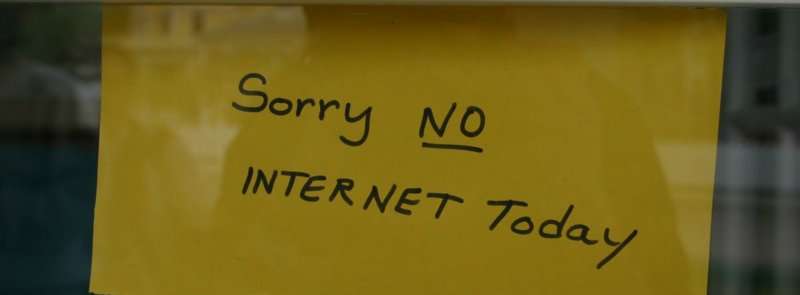By Edrine Wanyama |
Internet access and Short Message Services (SMS) were interrupted in the Democratic Republic of Congo (DR Congo) on January 20, 2018 ahead of a peaceful protest march organised by the Catholic Church to compel President Joseph Kabila to step down following the expiry of his final term in office. The country remains caught in a cycle of instability since the postponement of the November 2016 elections to December 2017, and then to April 2018.
The first interruption of digital communications in the vast central African nation occurred in December 2011 in the aftermath of general elections, before the announcement of the election results. The shutdown affected SMS, and lasted 25 days.
In the seven years since then, DR Congo has experienced at least five communication disruptions amidst growing concerns about surveillance of the digital communications of opposition leaders, journalists, and activists.
Affronts to internet access hurt human rights, and undermine political stability and economic growth. According to the new framework for calculating the economic impact of internet shutdowns, DR Congo loses at least USD 1,936,911 per day of an internet disruption.
The regular communication disruptions bring into focus the role of intermediaries in advancing internet freedom in the country. Specifically, telecom companies and other Internet Service Providers (ISPs) are being challenged to dissociate themselves from censorship, by declining to effect the government’s orders to cut off communications. Such a move would arguably be in accordance with the UN Guiding Principles on Business and Human Rights which require businesses to proactively address all adverse human rights impacts directly linked to their operations, products or services. However, many telecommunications services providers fear reprimand and termination of their licences for failure to comply with directives from the state to interfere or block digital communications.
Government directives to shut down the internet or interrupt communications are usually issued under the guise of “national security” or “public order”. In a letter ordering network disruptions in August 2017, an official of the national communications regulatory body, the Autorité de Regulation des Postes et Télécommunications du Congo (ARPTC), instructed service providers to take preventative measures to reduce the capacity to transmit “abusive messages.”
Internet penetration in DR Congo remains low at 4.2%, supported by a 55.7% mobile penetration. To-date, there are two primary laws governing the telecommunications sector, both of which were passed in 2002: the Framework Law 013/2002 on Telecommunications, and the Law 14/2002 on the Regulations – the law that established the national regulator. However, rather than advance internet access and usage, these laws have often been used against the media and critics of the state. Meanwhile, there are limited meaningful avenues for citizens to provide inputs to proposed new laws related to the telecommunications industry.
President Kabila’s government should boldly work to stop the abuse of rights which the country’s 2005 constitution guarantees . Abuse of free expression and access to information has continued in Congo despite the recognition of access to the internet as a human right by African and International Human Rights instruments. The UN Secretary General has previously called and continues to call upon the Congolese government to uphold her citizens’ freedoms to speech and peaceful assembly.
It is thus imperative that Congo government authorities desist from interrupting digital communications and guarantee citizens’ access to the internet and to the full enjoyment of their digital rights. Further, the Congo government should recognise the relationship between access to the internet and citizens’ livelihoods and work to grow the number of its citizens that meaningfully access and use digital tools and services.

